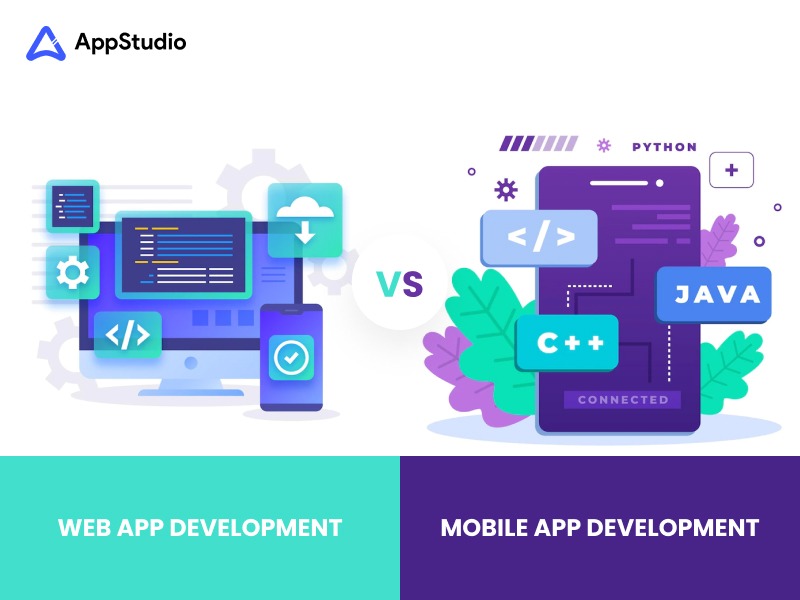Modern technology has allowed for more efficient ways of connecting and sharing information. With the rise of mobile phones, tablets, and other devices, businesses have been increasingly turning to different solutions like mobile apps and web applications to streamline operations. But while both platforms offer users unique features tailored towards their specific needs, how do you know which one is better when setting up your business’s digital presence?
In this blog, we’ll explore the differences between mobile app development versus web app development in order to help you determine which solution works best for your company. We’ll take a look at some key factors from cost, user experience (UX), platform compatibility, to security considerations & discuss what these solutions can mean for companies that are looking to expand their online reach. To explore various techniques and skills, take up this UI/UX online course and create user-friendly applications. So if you’re ready for some expert advice, let’s get started!
Mobile Vs Web App Development (Detailed Analysis)
Both services have their advantages depending on unique needs, but it’s important to understand when each approach should be used in order to maximize the benefit they offer. Now, we’ll go over how each platform differs and provide insight into which may work better for different kinds of projects.
Cost
The cost of developing a mobile application or a web application depends on several factors such as complexity of the project, platform used, etc. Generally speaking, mobile app development is more expensive than web app development because they require more resources such as hardware and software, says Slava Vaniukov, expert and CEO of Softermii.
Furthermore, mobile applications need to be tested on different devices to ensure compatibility across various platforms. On the other hand, web apps are usually cheaper to develop since they do not need extra hardware or software resources and can be accessed from any device with a stable internet connection.
Performance
According to web app developers, on average, mobile applications tend to perform better than web applications due to their native code which is optimized for device-specific performance metrics such as battery life or processor speed. Web applications require additional layers of abstraction which can lead to slower loading times or unreliable behavior in certain conditions.
Though, modern technologies like progressive web apps have allowed web app developers to bridge some of these gaps by taking advantage of powerful browser APIs while still providing a native-like experience with faster loading times and improved performance.
Security
When it comes to security, both types of applications have their strengths and weaknesses but overall mobile apps tend to offer stronger protection against malicious attacks due to their tighter integration with device-level security features such as biometrics authentication or data encryption APIs available only in native environments.
In contrast, any top website development company designs their web apps to offer better protection against cross-site scripting attacks thanks to advanced browser features like Content Security Policy (CSP) which helps prevent malicious code from running in a user’s browser session.
Scalability
In mobile application development, scalability can be an issue due to device incompatibilities and design limitations. But web apps are typically better able to easily incorporate new features and data sources when needed.
With web development, there’s also no need for additional downloads as users access up-to-date versions via an internet browser. Web apps not only let you avoid having to develop separate applications for multiple platforms but often allows customers more flexibility in their use of an application such as on different devices and browsers.
Platforms
Globally, the majority of the leading app development company develop mobile applications for specific operating systems namely iOS or Android whereas web applications run in browsers like Chrome or Safari and are compatible with most devices. This makes web applications more versatile since they do not need to be customized for different platforms or devices. However, mobile apps offer better integration with phone features such as camera access or GPS tracking which may be beneficial depending on the purpose of your application.
User Experience
Finally, user experience (UX) is one of the most important factors in determining how successful an application will be. Both mobile and website development services offer different UX benefits depending on their design and implementation strategies. Mobile applications generally provide better usability than web applications due to their intuitive user interfaces and dedicated device capabilities such as motion sensors or touchscreens.
Some businesses may prefer a simpler UX offered by most modern browsers used by users who access their website through a desktop computer or laptop device instead of a smartphone or tablet device running an operating system like Android or iOS.
Closing Notes
When deciding whether mobile application development or web app development is the right choice for your project, it’s important to understand both options thoroughly before making a decision. Mobile apps offer enhanced performance and access device-specific features, while web apps allow users access content across multiple devices without downloading separate versions and are often easier/cheaper to develop with quicker turnaround times before reaching market.
Ultimately though, this choice depends on your individual needs and what kind of user experience you want your customers to have when using your application. All in all, make sure you consider all the factors before making a final decision.


